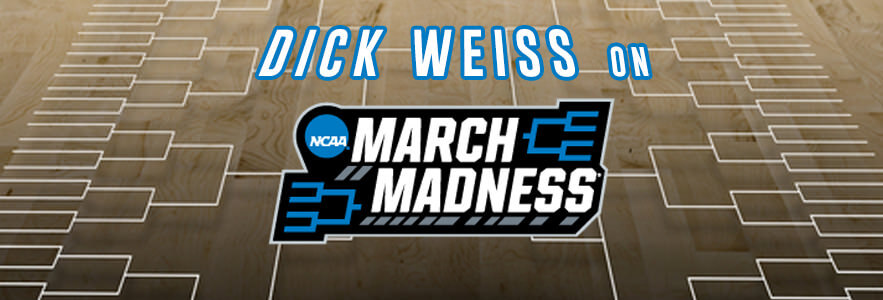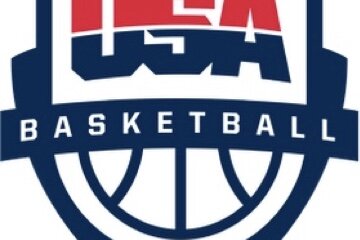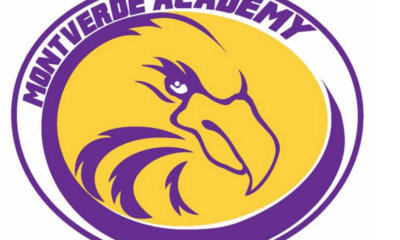
Dick Weiss on NCAA Tournament
SAN ANTONIO, Tex.– Loyola of Chicago coach Porter Moser still has the late Rick Majeras’ number saved on his cell phone.
When the 11th seeded Missouri Valley champions defeated Kansas State, 78-62, last Saturday in Atlanta to advance to a NCAA Final Four match up against Michigan here Saturday at the Alamo dome, Moser picked up the cellphone and pressed the green button for old times sake. He knew the phone would be disconnected as Majeras died of heart failure in 2012 as the age of 64. But to Moser, the number had great sentimental value.
“I miss him,’’ Moser admitted. “I wish I could call him right now to thank him. He means so much to me. I can still hear his voice.
The 49-year old Moser learned to reinvent himself when he spent four years as an assistant with Majeras at St. Louis, after being fired at Illinois State.
Moser was a young coach when he watched Majeras, one of the great minds in college basketball, take Utah to the national championship game against Kentucky here 20 years ago at the same arena.
“I remember, as a young coach, seeing Coach Majeras in a white T-shirt that said, ‘Utah Utes’ and his whole team walking out onto the court. I remember going, ‘Holy Cow, how big is that team?’ And I remember seeing them on the River Walk at a restaurant at the Final Four.
“Then fast forward to the time I worked for Coach. One of the things about him, he remembers things. There’s nothing that stuck in his crawl more than losing that championship game to Kentucky. He could tell you every play. He could tell you everything. It physically bothered him.
“And he talked about it. And the irony of him going to that one Final Four as a head coach, and for me to spend so much time with him, to be here in San Antonio, is special.’’
Moser was considered a rising star when he took a 4-24 team and led Arkansas Little Rock to a 54-34 record in three seasons. He fielded other offers before accepting the head coaching job at Illinois State. But he slipped and fell. Moser went through three athletic directors and was fired after four seasons with three years left on his contract in 2006 after going 51-67.
Moser and his wife Megan talked about the best avenue to take to pursue his profession—take another low major head coaching job or become an assistant with Majeras. “I had been through two rebuilds,’’ he said. “I wanted to spend some time with the genius.’’
Moser had met Majeras only once as a 25-year old assistant at Texas A & M when the two exchanged game tapes at the Maui Classic. They didn’t talk again until Majeras called him for a two-hour interview and another hour long call later that night.
“I had a competitive reinvention with Rick,’’ Moser said. “I went there with the approach where I’m going to be in the room with one of the best basketball minds for however long it was, and I’m going to have the competitive reinvention,’’ Moser said. “I’ll be back. I’ll be a head coach again.
“And you have to dive into that. Part of the process of adversity, you’re going to go through mourning. That’s normal. I’m not going to tell my guys, you can’t feel emotion, you can’t feel down when something bad happens to you. That’s normal. You can’t stay down. You’ve got to be positive and move forward.
“I hope people see that. Especially in the coaching profession where it’s such a fraternity. There are a lot of great coaches out there and I can name a handful right now that just lost their jobs. It’s part of the business. But it doesn’t have to be over for them.’’
Moser earned his doctorate in coaching under Majeras, who became a close friend and mentor. He soaked in as much knowledge as possible as Majeras built the Billikens into an NCAA caliber Atlantic 10 team before he left to take the job at Loyola in 2011 with Rick’s blessing.
Moser still has a notebook of x’s and o’s from his time at St. Louis and keeps a journal on his nightstand of his memories with Rick with the intention of writing a book someday.
It took Moser five years to rebuild this Loyola team. He did it by preaching offensive spacing and the Ramblers are shooting 52 percent. And he demanded a winning culture, signing seven players who won state championships and one who won a national junior college title in Hutchinson. There are no McDonald’s All Americas on this roster, no one and dones. But the lessons Moser learned from the detail oriented Majeras has been reflected in this unselfish, fundamentally sound 32-5 team that has become the darling of this tournament.
The Ramblers captivated the hearts of America by producing new heroes every game. Senior forward Donte Ingram, a former Chicago Public League star at Simeon, drained a 28-foot three- point jumper at the buzzer to give Loyola a 64-62 victory over sixth seed Miami in the first round of the South Region in Atlanta. Red shirt junior point guard Clayton Custer made a jumper with 3.2 seconds left to give the Ramblers a 63-62 victory over third seed Tennessee in the second round. Redshirt Junior Marques Townes made a huge three with 6.2 seconds to play as the shot clock was ready to expire to give Loyola a 69-68 victory over Nevada in the Sweet 16 and senior defensive specialist Ben Richardson exploded for a career high 23 points as the Ramblers defeated Kansas State in the Elite Eight.
The Loyola locker room was mobbed Thursday a media horde who all wanted to write about the latest version of “Hoosiers.’’
“I get asked a lot, ‘What do you think coach Majeras would think of your team,’’ Moser said. “I think he would look at and I think he look at it and I think he’d like to watch us play. I still remember recruiting for him. I’d bring a big guy to the table and ask him, how about this kid? He wouldn’t ask if the kid was athletic or if he had good hands. He would ask me one question: Does he like to play? Does he love to play?
“He’s start with that and the development process would start. And I think he would love our team. We share the ball. I think he’d say we play the right way. We’ve got to be the first team in Final Four history to win the first four games with no dunks. We have a finger roll lay-in that some of the guys are trying to debate whether it should count as a dunk. But I’m proud of our guys and how unselfish they are.’’
Moser sounded just like the guy who helped him find himself again.
Dick Weiss is a sportswriter and columnist who has covered college football and college and professional basketball for the Philadelphia Daily News and the New York Daily News. He has received the Curt Gowdy Award from the Naismith Basketball Hall of Fame and is a member of the national Sportswriters Hall of Fame. He has also co-written several books with Rick Pitino, John Calipari, Dick Vitale and authored a tribute book on Duke coach Mike Krzyzewski.





